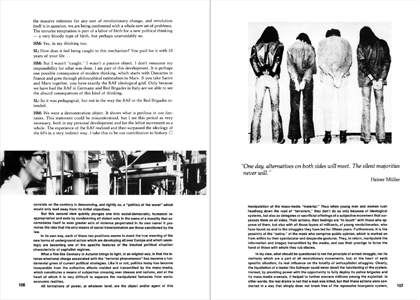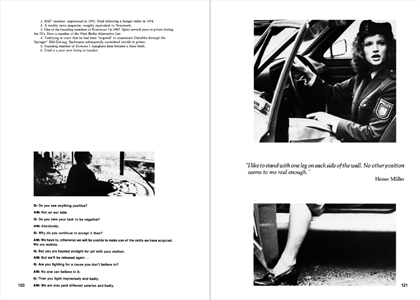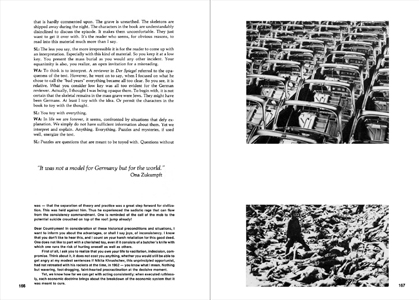A first-hand account of the Western world on the threshold of a major global mutation.
The German Issue (1982) was originally conceived as a follow-up to Semiotext(e)'s
Autonomia/Italy issue, published two years earlier. Although ideological terrorism was still a major issue in Germany, what ultimately emerged from these pages was an investigation of two outlaw cities, Berlin and New York, which embodied all the tensions and contradictions of the world at the time.
The German Issue is the
Tale of Two Cities, then, with each city separated from its own country by an invisible wall of suspicion or even hatred. It is also the complex evocation of the rebelling youth—squatters, punks, artists and radicals, theorists and ex-terrorists—who gathered all their energy and creativity in order to outlive a hostile environment.
Like a time capsule,
The German Issue brings together all the major “issues” that were being debated on both sides of the Atlantic—which eventually found their abrupt resolution in 1989 with the fall of the Berlin Wall. It involved the most important voices of the period—from writers and filmmakers to anthropologists, activists and poets, terrorists and philosophers. The book opens with
Christo's “Wrapping Up of Germany” and the celebrated dialogue between East German dramaturge
Heiner Müller and Sylvère Lotringer on the Wall (“Mauer”). Since it has been published in many languages,
The German Issue offers a first-hand account of the Western world on the threshold of a major global mutation.
“I like to stand with one leg on each side of the wall. Maybe this is a schizophrenic position, but none other seems to me real enough.”
Heiner Müller,
The German Issue
French
philosopher Sylvère Lotringer, general editor of Semiotext(e), lives in New York and Baja, California. A younger contemporary of
Gilles Deleuze, Félix Guattari, Jean Baudrillard,
Paul Virilio and Michel Foucault, he is one of the main introducers and interpreters of
French Theory in the United States.
He is the author of
Overexposed: Perverting Perversions (Semiotext(e), 2007).






